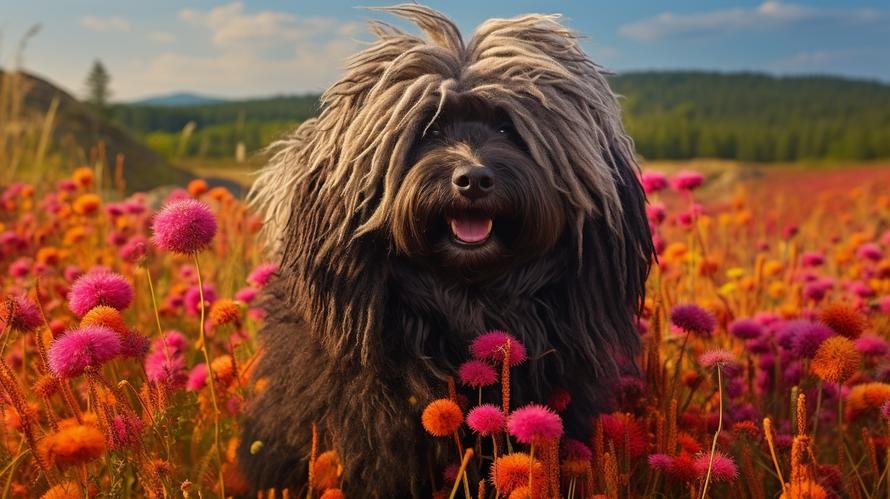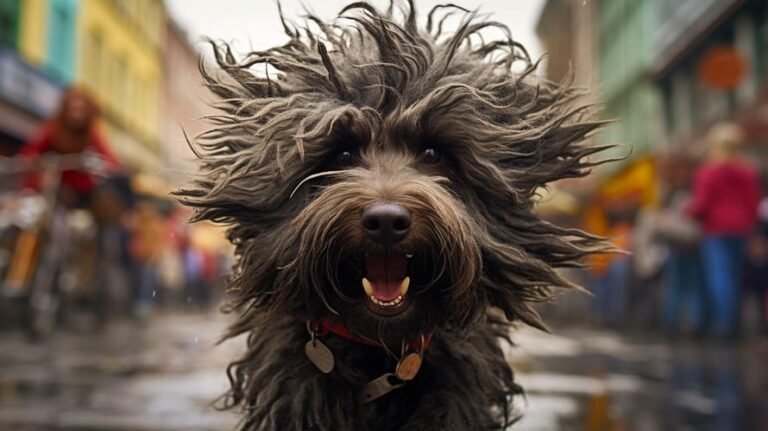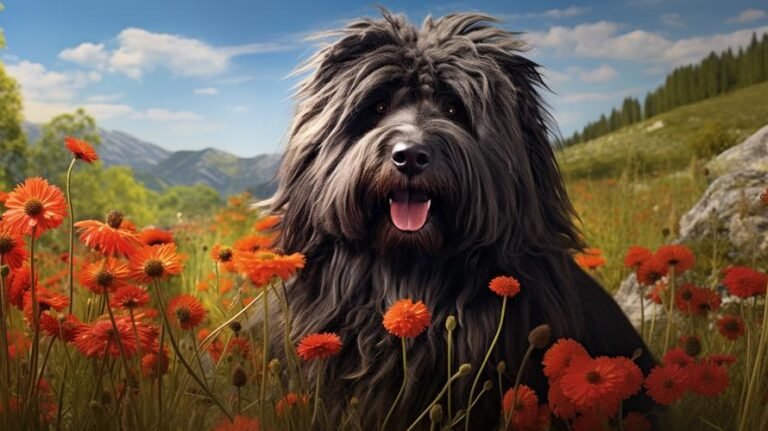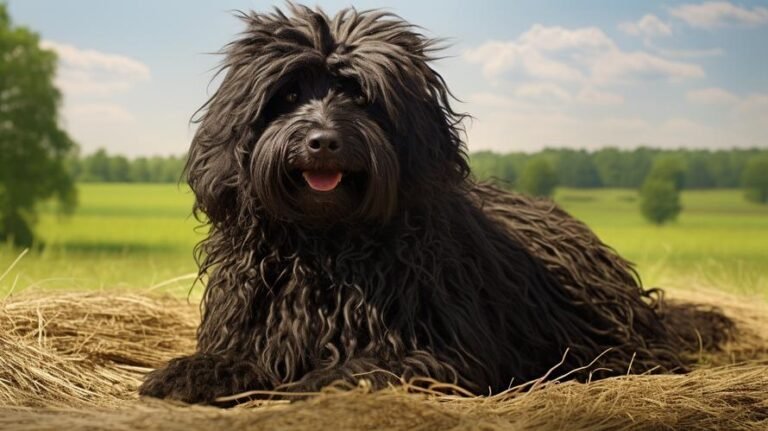Have you ever seen a dog that looks more like a mop than a canine? No, your eyes are not tricking you. Indeed, it is the Puli that captures your gaze! Unruly, corded fur, giving it a Rastafarian appearance and a uniquely whimsical appeal, the Puli is a small dog with a big personality. While these dogs, native to Hungary, might look amusing and harmless, it’s important to ask, “Are Puli dogs dangerous?”
Well, let’s dive into our exploration of this interesting breed right now, shall we?
Firstly, Pulis, like any breed of dog, are individuals. They all have different personalities, quirks and behavior patterns. However, their breed does indeed provide a broad general indicator of what the standard Puli personality is like. Pulis are naturally clever and perceptive dogs. They are renowned for their trainability, keen intelligence, and excellent memory. This intelligence gives the Pulis their distinct ‘watchdog’ instincts, as they’re highly alert and can discern between usual and unusual situations in and around their homes.
But does this mean they are dangerous? Not necessarily.
A Puli is highly protective of its family, including other pets in the household. If they’re socialized well as puppies, they usually grow up to be friendly and sociable dogs. However, it’s important to note that their protective instinct can kick in if they perceive a threat, which means they can show aggressiveness towards strangers or unfamiliar animals.
This breed tends not to be randomly aggressive without cause. Therefore, when we ask if Pulis are dangerous dogs, we need to consider what’s prompting the question. If the concern is whether a Puli could potentially become aggressive in certain circumstances, then yes, like with any dog breed, there is a potential for aggressive behavior.
How do we eliminate or drastically reduce the risk of any aggressive tendencies in a Puli? It’s all about understanding their temperaments and giving them the right upbringing!
Pulis are a proud and independent breed, making them sometimes a bit more challenging to train than other breeds. The key lies in establishing control and setting boundaries early on. Pulis respond well to positive reinforcement training methods, like using treats and praises.
It’s also crucial to socialize your Puli from a young age. Introducing them to a variety of people, sights, sounds, and situations can help them become well-rounded dogs. This can ensure they don’t become overly protective or territorial as they grow older.
Bear in mind that a Puli’s unusual coat can impact their behavior too. Those twisted cords can make it hard for them to see, leading to some becoming jumpy when surprised. Regular grooming can minimize this.
The Puli is an active dog breed and requires plenty of physical and mental stimulation. Ensure they’re getting enough exercise by arranging daily walks, playtime sessions, and mental stimulation games. A bored Puli can not only become destructive but could potentially exhibit behavioral problems.
So, when we ask if Pulis are dangerous dogs, it’s not a simple yes or no answer. The nature of a Puli, like other breeds, depends largely on their upbringing, socialization, training, and overall treatment.
A Puli can be a loving and even docile pet, so long as they are raised with care. They can also easily become a loyal and protective member of your family, given the appropriate training. The truth is, the question of danger is not breed-dependent but rather behavior-dependent.
Whether you are considering adopting a Puli or are a curious dog enthusiast, remember that every dog deserves love, kindness, and understanding. Determining the ‘danger’ level of any breed does not necessarily lie solely in the dog’s traits but also in the environment they are raised in and how the owners handle them.
In conclusion, are Pulis dangerous? They don’t have to be. Proper training, sufficient socializing, and a lot of affection can ensure a Puli grows up to be an outstanding and delightful companion, far from being a threat. It’s all in the upbringing, after all, don’t you agree?



